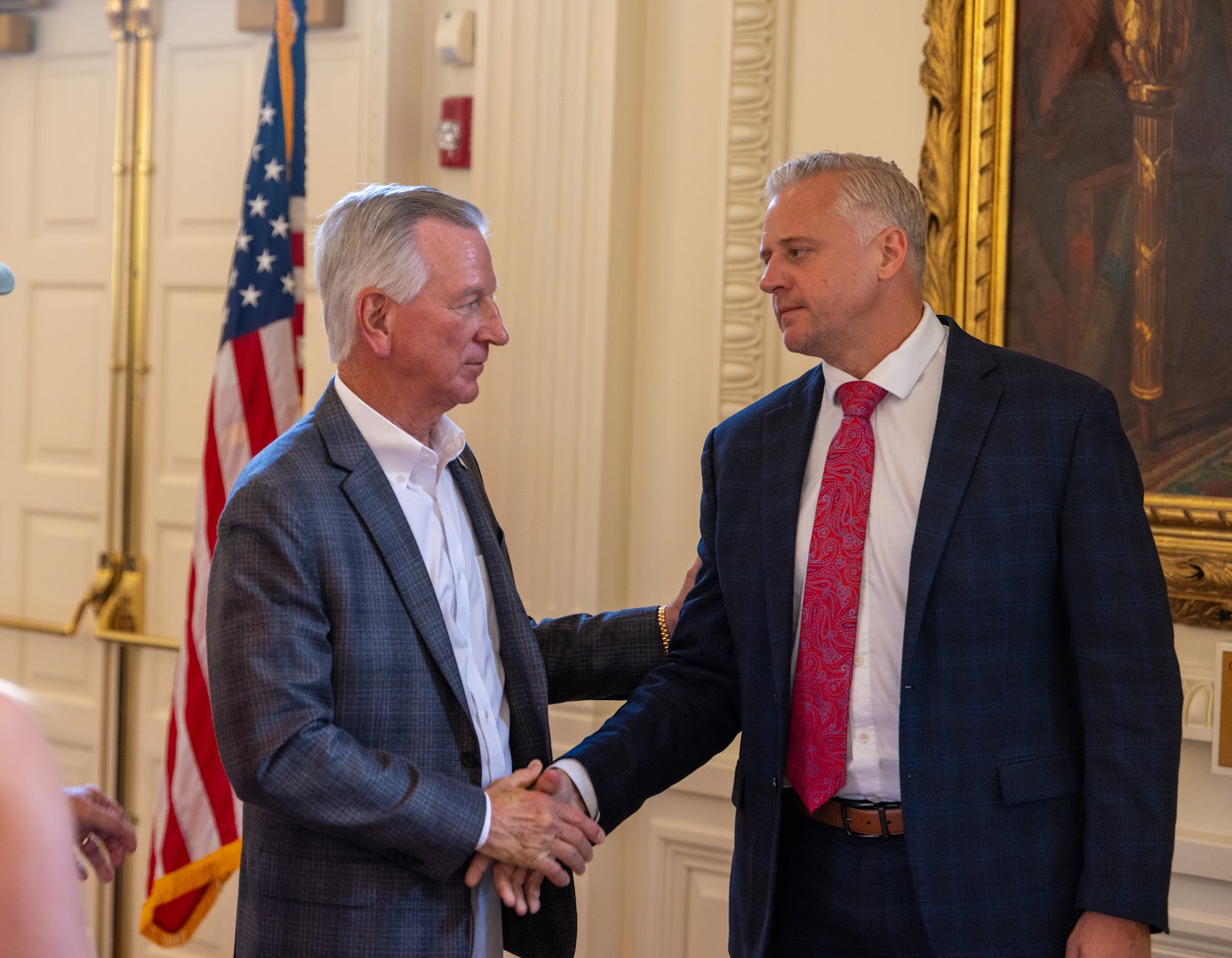
Coalition Calls on Congress to Expand Research, Accelerate Access and Establish Federal Task Force for Veteran Mental Health
New York, NY (Aug. 22, 2025) — The Veteran Mental Health Leadership Coalition (VMHLC) — a national alliance of Veterans, family members, clinicians, researchers, advocates and mission-aligned partner organizations on the front lines of the mental health and suicide crisis—will testify before the U.S. Senate Committee on Veterans’ Affairs at the field hearing “Separating Fact from Fiction: Exploring Alternative Therapies for Veterans’ Mental Health” in Montevallo, Alabama, hosted by Senator Tommy Tuberville (R-AL).
Marr, a U.S. Army combat Veteran, highlighted the limitations of status quo mental health care and the work of Veterans to expand access to psychedelic and other emerging therapies that facilitate more holistic healing than standard, frequently overprescribed medications like SSRIs. He called on Congress and the VA to act with urgency in turning supportive words into meaningful action, with concrete recommendations from VMHLC on the path forward.
“Veterans aren’t broken; the system is,” Marr testified. “This hearing is our chance to unite science, lived experience, and policy to finally bring healing home. As a combat Veteran, I’ve walked through the depths of trauma and witnessed the toll of inaction – friends lost to suicide, families torn apart, and communities left behind. I’m grateful to Senator Tommy Tuberville for hosting this hearing and giving Veterans a platform to be heard. Today, we carry their voices into the Congressional record and demand a future where Veterans don’t have to travel abroad or break the law to access therapies that save lives.”
During his testimony, Marr underscored that VMHLC represents a unified national coalition of Veterans, families, clinicians, researchers, and advocates driving systemic change. In his testimony, Marr outlined concrete steps for federal leadership, including:
Establish a formal access pathway under the Right to Try Act enabling qualified physicians to administer eligible investigational psychedelic therapies to patients with terminal or life-threatening conditions who have exhausted other options and are unable to participate in clinical trials.
Leverage the National Priority Review Voucher program to fast-track approval of MDMA and psilocybin therapies, with appropriate REMS protocols and post-market data requirements to better assess durability and adverse events.
Establish a VA-led emerging therapies task force with outside stakeholders to identify the most promising additional emerging therapies for functional improvement across the spectrum of invisible wounds of war (e.g., other novel psychedelic medicines, neuromodulation, neuro-restorative protocols, hormone restoration, moral injury-targeted programming, integrative wellness approaches) and prioritize funding research and development.
“Adam’s testimony beautifully reflects the collective voice of Veterans, families, clinicians, and advocates who have been laboring on the front lines of this crisis,” said VMHLC President LtGen. Martin R. Steele, USMC (Ret.). “But testimony alone will not save lives. Real change requires Congress and the VA to get moving, including investment in breakthrough therapies, removal of outdated barriers, and a commitment to train healthcare providers and accelerate access. Every year we delay, too many Veterans and their families continue to suffer and lives are unnecessarily lost. That is a national failure we cannot allow to continue, and we are here to work together and help move the system forward.”
The coalition noted that while there have been supportive statements from leaders in the Trump Administration on psychedelic therapies, words are no longer enough. Congress and the Administration must move with urgency to fund research, reduce barriers, and expand access. VMHLC emphasized that it is absurd for Veterans who have exhausted other options to be forced to leave the country or risk breaking the law to access potentially lifesaving treatments.
From psychedelic-assisted treatments to advanced neuromodulation and neuro- restorative protocols, VMHLC’s Congressional Policy Roadmap provides concrete steps to move the system forward. The coalition of front-line experts across science, medicine, policy, and lived experience stands ready to partner with Congress and the VA to activate these measures for the many Veterans and families who have been failed by the status quo.
The full written testimony from VMHLC Director of Operations Adam Marr is available